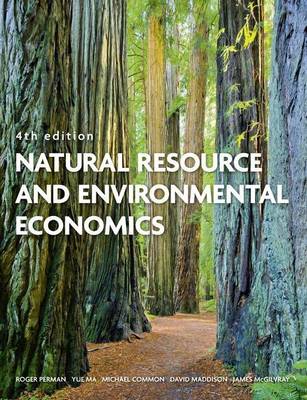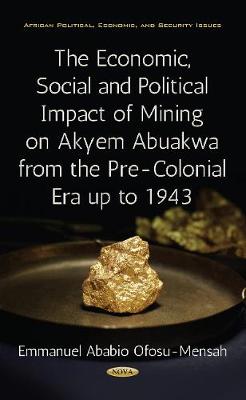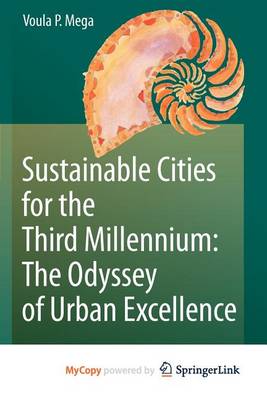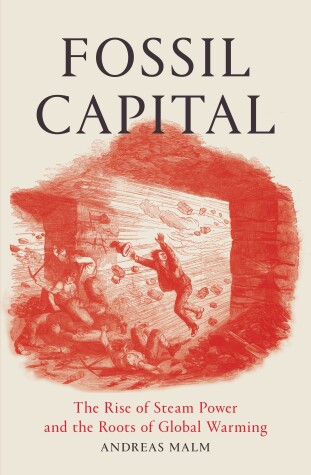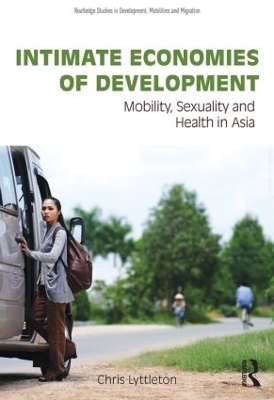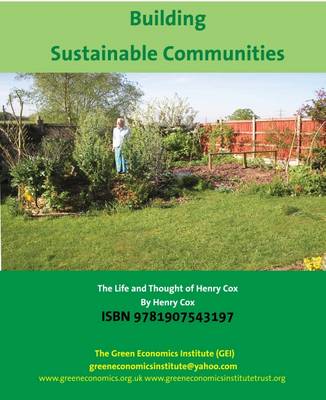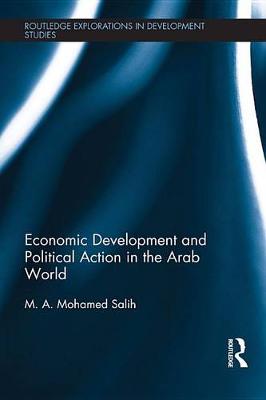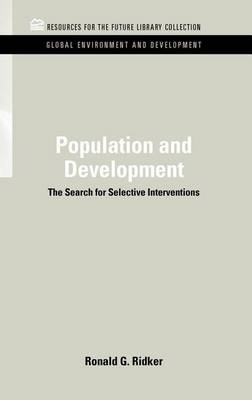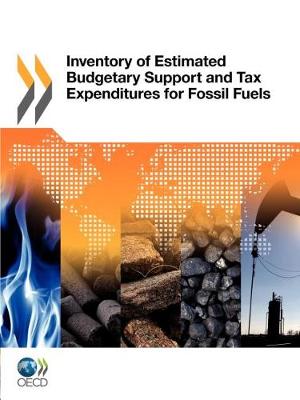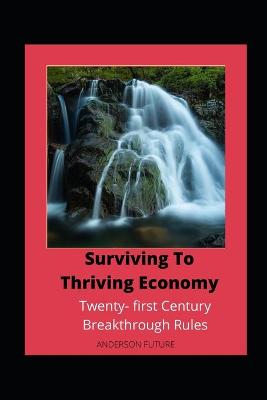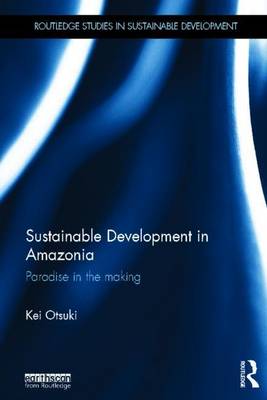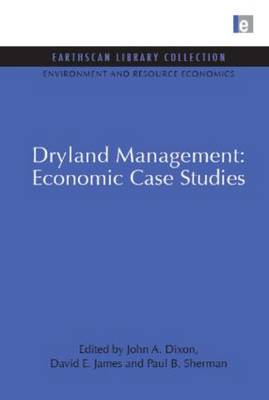Natural Resource and Environmental Economics
by Senior Lecturer in Economics Roger Perman, Yue Ma, Michael Common, David Maddison, and James McGilvray
This is an updated and revised edition of a highly respected environmental economics text which combines rigorous economic theory with practical applications to provide the most thorough coverage of the subject.
The issue of mining in Ghana has attracted an important and recent debate. On the beneficial side, there are those who point to state revenue, industrial development, employment opportunities and social amenities such as the building of roads, schools and clinics, and provision of electricity and granting scholarships to children. Adherents to such a stance see mining as the propeller of economic development and growth. However, there are those who see mining as leading to environmental degradat...
Locating the Industrial Revolution: Inducement and Response
by Eric L Jones
The familiar industrialisation of northern England and less familiar de-industrialisation of the south are shown to have depended on a common process. Neither rise nor decline resulted from differences in natural resource endowments, since they began before the use of coal and steam in manufacturing. Instead, political certainty, competitive ideology and Enlightenment optimism encouraged investment in transport and communications. This integrated the national market, intensifying competition bet...
The more we debate about the catastrophic implications of climate change, the more fossil fuels we continue to burn. How did we get caught up in this mess? In this masterful new history, Malm claims that it all began in Britain with the rise of steam-power. So why did manufacturers turn from traditional fuels, notably water, to steam? Overturning established theories of the transition and offering a radically new view of our warming world, this study shows how steam was adopted as a superior sou...
Intimate Economies of Development (Routledge Studies in Development, Mobilities and Migration)
by Chris Lyttleton
Aspirations, desires, opportunism and exploitation are seldom considered as fundamental elements of donor-driven development as it impacts on the lives of people in poor countries. Yet, alongside structural interventions, emotional or affective engagements are central to processes of social change and the making of selves for those caught up in development’s slipstream. Intimate Economies of Development lays bare the ways that culture, sexuality and health are inevitably and inseparably linked...
Building Sustainable Communities: The Life and Thought of Henry Cox
by Henry Cox
Specifically, as the industrial era took over, 'The Economy' was seen, by Smith, Ricardo, Marshall and others, to have changed to include what was done by firms (bodies corporate), often done for firms. That is beyond the original concept of Oikia as the households and estates in Greek city states. But Neoliberal Economics came to exclude the original context; and now Green Economics is re-introducing it. Economics became a subject (discipline) in universities and spread through the Education sy...
A growing number of GHG emissions trading schemes are being implemented at regional or national levels. However, even as the number of different schemes grows, few linkages exist between them. Major cap-and-trade proposals are currently at important stages in their development, especially in the United States, Japan and Australia, some of which explicitly emphasize the aim of linking with other schemes. One of the strategic goals of European climate policy is linking the EU ETS with other compar...
America the Possible: Manifesto for a New Economy
by Professor James Gustave Speth
Si, Nda Bot and Ayong (Rural Development Forestry Network Paper, v. 21e)
by Mariteuw Chimere Diaw
Neoliberal Structural Change and the Electricity Sector (Routledge Advances in Heterodox Economics)
by Lynne Chester
This book presents an unparalleled account of the drivers and outcomes of electricity sector liberalisation, and argues that this industrial restructuring has created pervasive threats to long-term economic growth, financial market stability, environmental degradation and society's well-being. The hegemony of neoliberalism has led to the radical restructuring of industry sectors of which electricity is a very prominent example. Australia has been at the forefront of this restructuring with a mo...
Formal Peace and Informal War: Security and Development in Congo (Routledge Explorations in Environmental Studies)
by Zo Marriage
Analysis of North African revolt against authoritarianism, known as the 'Arab Spring', embraced reductionist explanations such as the social media, youth unemployment and citizens' agitations to regain dignity in societies humiliated by oppressive regimes. This book illustrates that reductionist approaches can only elucidate some symptoms of a social problem while leaving unexplained the economic and political structures which contributed to it. One outcome of quiescence, resource-based ethnic a...
Population and Development: The Search for Selective Interventions
by Professor Ronald G Ridker
International Aid and the Making of a Better World: Reflexive Practice (Rethinking Development)
by Rosalind Eyben
The Pricing of Internationally Traded Gas
This is the first book on the pricing of gas in international trade. Gas accounts for around 25% of global energy demand and international gas trade is growing rapidly. The volume examines the theory of energy pricing and looks at the contribution that theory can make to the study of international gas pricing. It traces the historical origins and development of international gas pricing in North America, Europe, Asia, and the former Soviet Union since the 1970s, and other regions up to the earl...
Inventory of estimated budgetary support and tax expenditures for fossil fuels
Environmental Degradation from Mining and Mineral Processing in Developing Countries
Environment and Development Economics
by Scott Barrett, Karl-Goran Maler, and Adams University Professor Eric S Maskin
This book honours Partha Dasgupta, and the field he helped establish; environment and development economics. It concerns the relationship between social systems (to include families, local communities, national economies, and the world as a whole) and natural systems (critical ecosystems, forests, water resources, mineral deposits, pollution, fisheries, and the Earth's climate). Above all, it concerns the poverty-environment nexus: the complex pathways by which people become or remain poor, and...
Sustainable Development in Amazonia: Paradise in the Making (Routledge Studies in Sustainable Development)
by Kei Otsuki
Environmental and Resource Economics Set (Earthscan Library Collection)
by Various
Capturing the economic value of natural resources has become an integral part of their successful management and conservation. The Environmental and Resource Economics Set contains seminal texts covering a range of ecosystems and valuation methods. In the last two decades, environmental threats and the challenge of sustainability have moved to the very centre of political, business and, increasingly, personal agendas. The Earthscan Library Collection has been created to bring back into print t...

